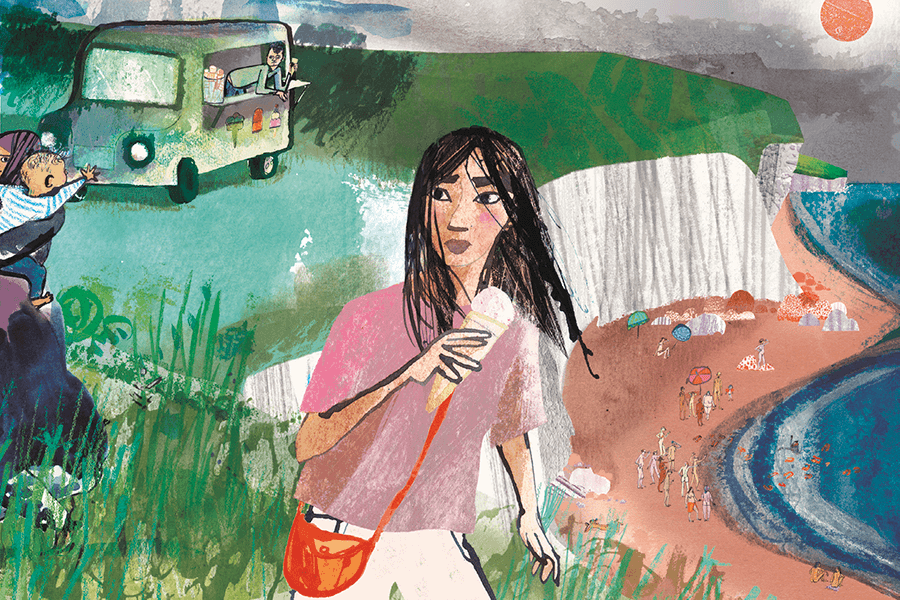
Illustration by Jill Calder
Greensleeves
After the event, it was observed that there can be no neutral bystanders. If employment of the passive voice has also been observed in the preceding sentence—as in, if some hypothetical person has just noticed that passive voice—the same hypothetical person might wish to ask: Who was it that did the observing? It was the bystanders themselves. Afterwards, though none of them would have said they did anything wrong exactly, none of them felt exactly right or neutral. They were British citizens or legally domiciled residents all, and all naked, which was not technically illegal. (One of them might…






















































































